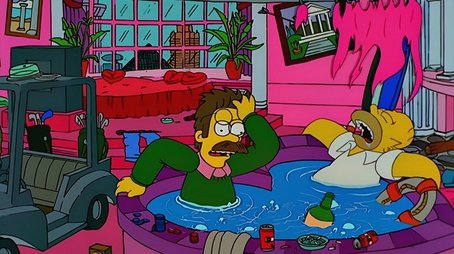
Sorry, we have not watched this yet.

When clean-living Ned Flanders wants to experience a new side of life, Homer takes him to Las Vegas. After a drunken binge, they marry a pair of cocktail waitresses.
Sorry, we have not watched this yet.